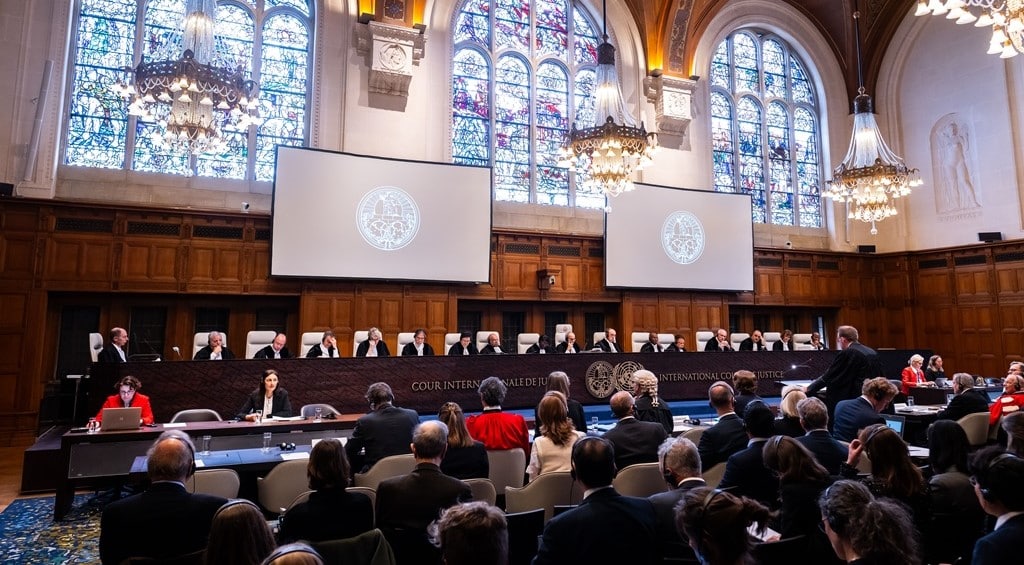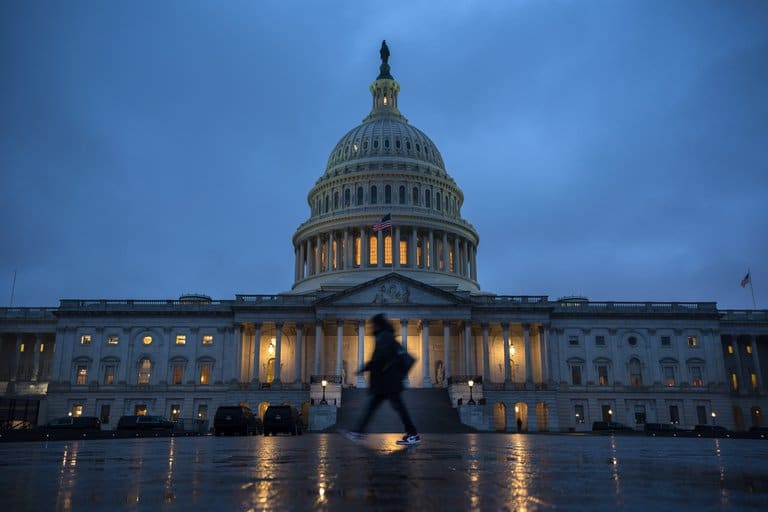30 de marzo 2021

ICJ Rules Against Nicaragua's Request For Germany to Halt Arms Sales to Israel

PUBLICIDAD 1M
PUBLICIDAD 4D
PUBLICIDAD 5D
Deborah Ullmer of the National Democratic Institute: "we don't have to wait until the bill comes out for Biden to implement sanctions policies."

El Departamento del Tesoro sancionó a la ministra de Defensa
The bipartisan bill proposing to push for democratic elections in Nicaragua this year, introduced on March 25 by six influential senators on Capitol Hill — among them Democrat Robert Menendez and Republican Marco Rubio — represents a call to Joe Biden's administration to prioritize the crisis in Nicaragua caused by the repression exercised by Daniel Ortega's regime.
According to Deborah Ullmer, director for Latin America of the National Democratic Institute (NDI), "we don't have to wait for the bill to come out to start applying some of the sanctions policies that already exist".
The initiative is sponsored by Menendez, chairman of the Senate Foreign Relations Committee; Rubio, senator for Florida, but also by Democrats Tim Kaine, Ben Cardin and Chris Murphy. On the television program Esta Semana, the director of NDI considered that the new initiative shows US concern for "the consolidation of a third dictatorship in the region".
The senators' initiative, named the Reinforcing Nicaragua's Adherence to the Conditions for Electoral Reform (RENACER) Act, demands greater supervision of the loans granted by the International Monetary Fund (IMF), the Inter-American Development Bank (IDB) and the World Bank to Nicaragua to guarantee that the funds are being "used for the intended purposes", in addition to proposing concerted actions of sanctions between the United States, Canada and the European Union to selectively punish those who obstruct the elections.
On the television program, Ullmer explained the scope of the aforementioned bill and recalled that there are instruments such as a corporate transparency law that punishes theft and is applicable to shell corporations since 2020. So far, the United States has sanctioned 27 members of Ortega's close circle with Vice President Rosario Murillo at the head, followed by his sons Rafael, Laureano and Juan Carlos Ortega Murillo.
"This Renacer Act is a reinforcement of the Nica Act. It expands all the policy tools that the United States has in terms of diplomacy, multilateral space, but also in terms of sanctions. It expands the Engel list" by incorporating Nicaragua, Ullmer explained.
The NDI official is referring to the list named after former Democratic congressman Eliot Engel, which allows the U.S. government to withdraw visas from officials accused of corruption and implicated in crimes in the northern triangle of Central America: Honduras, El Salvador and Guatemala, to which Nicaragua is now added.
According to Ullmer, the emphasis on these countries had allowed Ortega to go "under" the radar of U.S. foreign policy, which means that, by expanding the tools of pressure, U.S. attention on this Central American country is raised.
NDI is a non-governmental agency that defines itself as non-partisan. It was founded in 1983, has worked in 156 countries and aims to strengthen democratic institutions around the world according to information published on its website.
Ullmer said that if Biden decides to have a special representative for Nicaragua, progress could be made in a shorter period of time. Such a position would be similar to the recent appointment for the Northern Triangle, which is in the hands of Ricardo Zuñiga, the man who was in charge of negotiating with Cuba during the Obama years.
The RENACER proposal comes days after the Ortega regime was condemned by the United Nations (UN) Human Rights Council for human rights violations, and a little more than two months before the deadline set by the Organization of American States (OAS) for electoral reforms to allow free elections.
The country has been experiencing a serious human rights crisis since 2018 when the Executive repressed opposition protests: 328 people were killed, close to 100,000 people went into exile, according to international human rights organizations. Currently, opposition leaders are under siege and demonstrations against Ortega are not allowed.
Last Wednesday during a hearing in the Senate Foreign Relations Committee, Ullmer participated in an event on the situation in Latin America and the Caribbean, where Nicaragua was discussed at length, the day before the presentation of the RENACER project.
Also participating in that meeting was Ryan C. Berg, a governance analyst at the American Enterprise Institute, who recommended sanctions against the Nicaraguan Army, "since there are military personnel who have been involved in human rights violations".
Ullmer said Berg mentioned during his speech the Military Social Security Institute, the financial arm of the Nicaraguan military in charge of pension payments, as a possible target for targeted sanctions.
The military has been denounced by civil society for its complicity in the repression against the citizenry since 2018, specifically for refusing to disarm the paramilitary groups that, together with the Police, executed the massacre.
Officially they have denied their participation and recently published a regulation that, according to their critics, attempts to distance themselves from the paramilitary groups by declaring themselves as the "only armed body" and "non-partisan", the same arguments they did not listen to from civil society when they were asked to disarm the paramilitary groups.
This article been translated by Ana María Sampson, a Communication Science student at the University of Amsterdam and member of our staff*
Archivado como:
PUBLICIDAD 3M
Periodista nicaragüense, exiliado. Comenzó su carrera en el año 2000, cuando todavía era estudiante. Por sus destacadas investigaciones periodísticas ha ganado el Premio Ortega y Gasset, el Premio Internacional de Periodismo Rey de España, el Premio a la Excelencia de la Sociedad Interamericana de Prensa, y el Premio Latinoamericano de Periodismo de Investigación del Instituto Prensa y Sociedad (IPYS).
PUBLICIDAD 3D